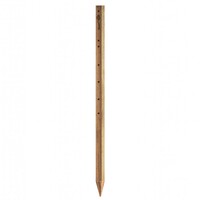Wooden electric fence posts


Gallagher self-insulated Timber (FSC®) for permanent fencing. Up to 70% more cost effective than traditional non-electric fencing. No insulators required. Insultimber (FSC®) does not require chemical treatment.


Gallagher Insultimber are FSC® certified wooden posts (250 cm) and an ideal solution for permanent fences. Insultimber posts are completely self-insulating and do not require insulators.


Gallagher self-insulated Insultimber (FSC®) for permanent fencing. Up to 70% more cost effective than traditional non-electric fencing. No insulators required. Insultimber (FSC®) does not require chemical treatment.


These self-insulated timber fence posts are ideal for permanent fencing solutions. The Insultimber post range is up to 70% more cost effective than traditional non-electric fencing.


Gallagher self-insulated Timber (FSC®) for permanent fencing. Up to 70% more cost effective than traditional non-electric fencing. No insulators required. Insultimber (FSC®) does not require chemical treatment.


Gallagher self-insulated Timber (FSC®) for permanent fencing. Up to 70% more cost effective than traditional non-electric fencing. No insulators required. Insultimber (FSC®) does not require chemical treatment.


Gallagher self-insulated Timber (FSC®) for permanent fencing. Up to 70% more cost effective than traditional non-electric fencing. No insulators required. Insultimber (FSC®) does not require chemical treatment.


Gallagher self-insulated Timber (FSC®) for permanent fencing. Up to 70% more cost effective than traditional non-electric fencing. No insulators required. Insultimber (FSC®) does not require chemical treatment.